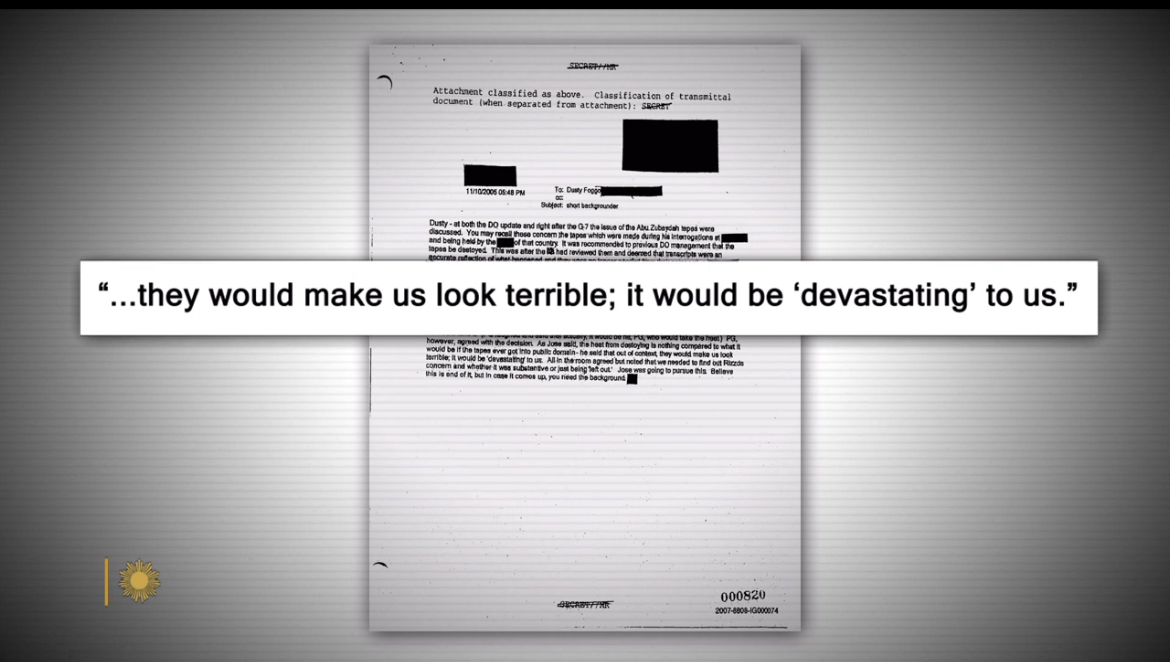
“A tsunami of secrets” | CBS News Sunday Morning examines the problem of classifying and declassifying government records and the proliferation of the classification process.
“What Lt. General Leslie Groves created in the national security classification system [as an outgrowth of the secret atomic bomb project in the 1940s] was a big bang, and that universe is still expanding.”
“Most secrecy is not about real damage. It's about preventing one form of embarrassment or another by the government.”
NO EQUIVALENT IN KENTUCKY
Although lawmakers enacted a “homeland security” exception to our open records law in 2005, there is no Kentucky equivalent of the national security classification system.
The homeland security exception is found at KRS 61.878(1)(m).
There is a corresponding open meetings exception for “that portion of a meeting devoted to a discussion of a specific public record exempted from disclosure under KRS 61.878(1)(m).”
https://apps.legislature.ky.gov/law/statutes/statute.aspx?id=51393
https://apps.legislature.ky.gov/law/statutes/statute.aspx?id=52570
Nevertheless, the burden of proving that denial of an open records request under the homeland security exception is proper rests with the public agency per KRS 61.880(2)(c) and 61.882(3), and that exception contains multiple requirements for invocation that do now exist in any other open records exception.
https://apps.legislature.ky.gov/law/statutes/statute.aspx?id=51394
https://apps.legislature.ky.gov/law/statutes/statute.aspx?id=23066
Unsuccessful attempts by former Governor Ernie Fletcher’s administration to invoke the exception to deny access to fuel receipts signed by members of the governor’s executive security detail and expense records related to the protection of Dick Cheney following his visit to the Kentuckiana area confirm that resolution of disputes concerning the applicability of the Kentucky “homeland security” exception turns on the “reasonable likelihood” language and that past attorneys general were not inclined to accept agency claims at face value.
The issue has yet to be tested in Kentucky’s appellate courts, but past attorneys general have declared:
“The restrictive language found at KRS 61.878(1)(m) . . . [and] the inclusion of distinct and separate requirements imports a legislative resolve that the provision be invoked judiciously and only when all requirements have been met.”
https://ag.ky.gov/Resources/orom/2005/05ORD255.doc
One thing is abundantly clear.
A state or local public agency in Kentucky cannot shield a public record from public access by stamping or marking it “Confidental” (or equivalent designation).
From the earliest days of the open records law, the Office of the Attorney General recognized that "a public agency cannot abrogate the mandatory provisions of the Open Records Law by a promise of confidentiality which is not authorized by KRS 61.870 to 61.884."
In other words, a public agency cannot bargain away the public's right to know by agreeing to keep public information private. It can only "promise confidentiality as far as the permissive exceptions permit."
In Central Kentucky News-Journal v. George, the Kentucky Supreme Court rejected the argument that "a confidentiality agreement may impute, per se, a public record with a privacy claim superior to that of the public's right of access," concluding that such an agreement "cannot in and of itself create an inherent right to privacy superior to and exempt from the statutory mandate for disclosure contained in the Open Records Act."
https://caselaw.findlaw.com/ky-supreme-court/1522952.html
The Court declared that "the people of this state, through their elected representatives, have stated in the clearest of terms that it is more important that they have access to . . . information than that it remain confidential."
The open records law recognizes a legitimate need for confidentiality in 18 exceptions approved by Kentucky lawmakers and found at KRS 61.878(1)(a) through (r). From the exceptions “we must conclude that with respect to certain records, the General Assembly has determined that the public's right to know is subservient to statutory rights of personal privacy and the need for governmental confidentiality."
https://apps.legislature.ky.gov/law/statutes/statute.aspx?id=48230
It is these exceptions, and not promises of confidentiality, confidentiality agreements or nondisclosure agreements that are not grounded in these exceptions, that govern access to records in the custody of a public agency.
Kentucky public agencies that offer assurances of confidentiality, or enter into NDAs that are not grounded in the statutory exceptions, do so at their peril, inviting open records disputes and costly litigation.



